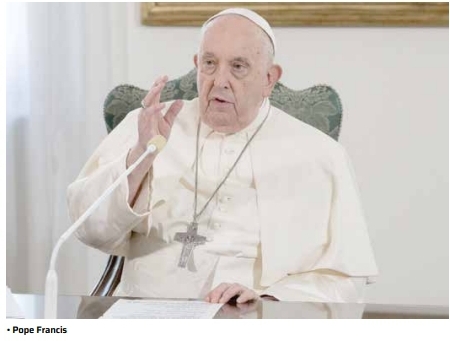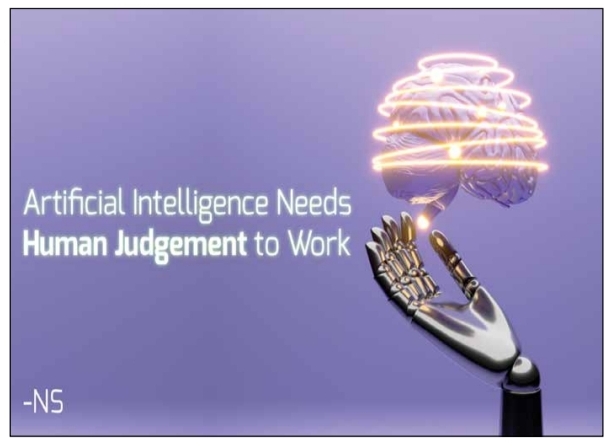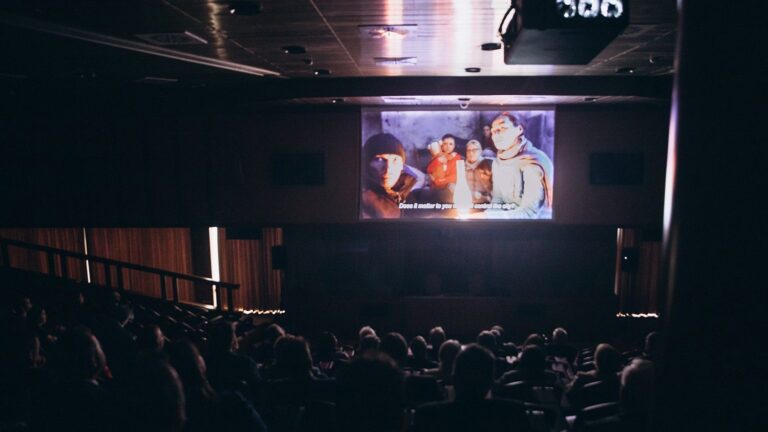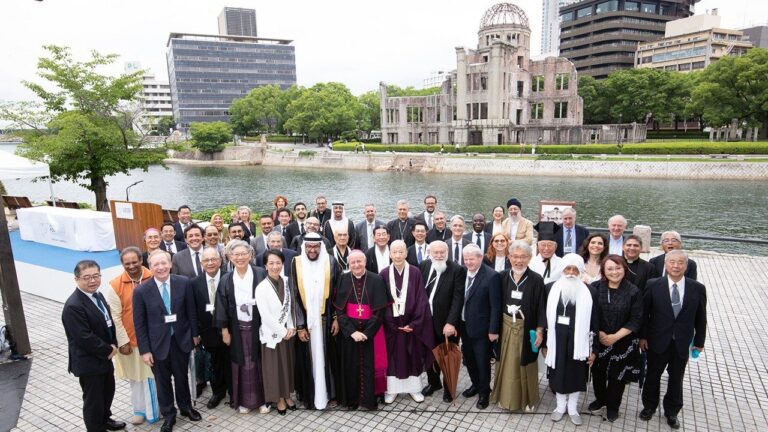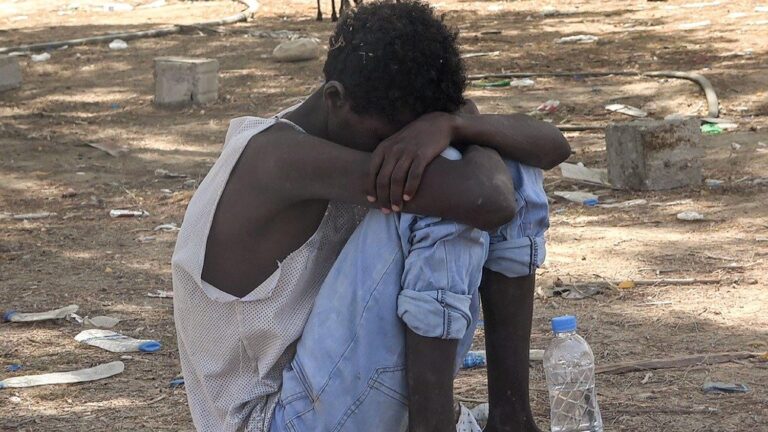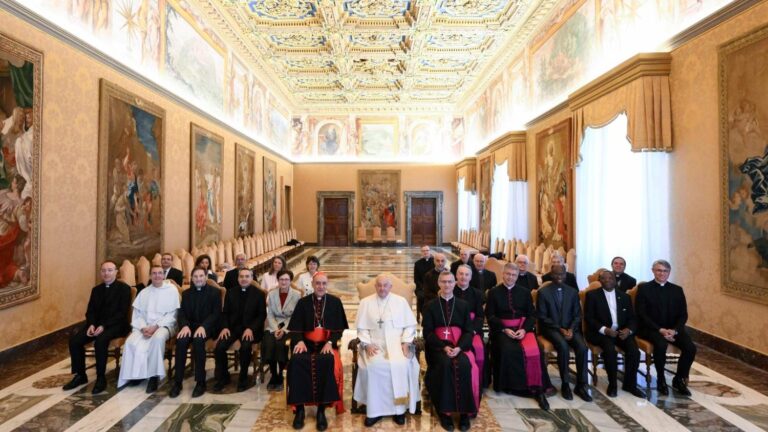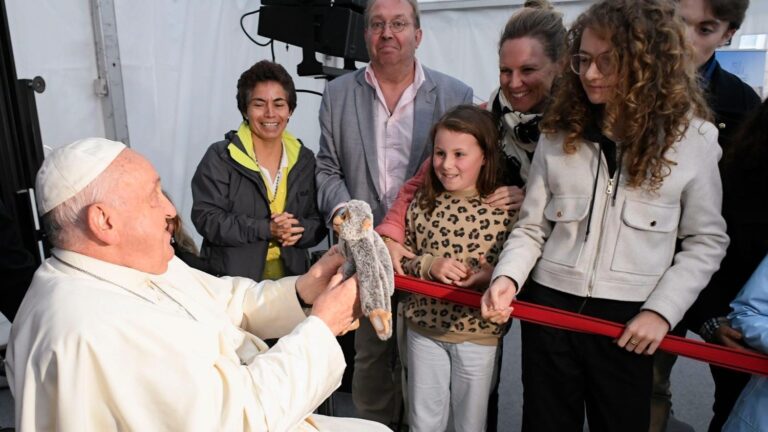World Communications Day: Pope Francis speaks on AI
lagosarchdiocese
His Holiness Pope Francis has called the term “Intelligence” in “Artificial Intelligence” misleading, stating categorically that the wisdom of the heart cannot be sought from machines. With the rapid rise of artificial intelligence (AI), there is growing concern that machines will eventually surpass human intelligence. But the Holy Pontiff, in his message on the occasion of the 58th World Communications Day, made it clear that although AI excels in intelligence, it can never replace human wisdom.
He wrote: “In this age of history, which risks becoming rich in technology and poor in humanity, our reflections must begin with the human heart. It is only by adopting a spiritual way of seeing reality, by rediscovering the wisdom of the heart, that we will be able to face and interpret the novelty of our time and rediscover the path to fully human communication.
Quoting the Bible, Pope Francis said: “The heart is considered the place of freedom and decision-making. It symbolizes integrity and unity, but it also engages our emotions, our desires, our dreams; it is above all the interior place of our encounter with God. Wisdom of the heart is therefore the virtue that allows us to integrate the whole and its parts, our decisions and their consequences, our nobility and our vulnerability, our past and our future, our individuality and our belonging to a larger community. The Holy Father emphasized that AI cannot provide the unique human wisdom needed to promote the common good of people and society.
His message stated that although AI can process much more data at incredible speeds than humans, the wisdom lies only in humans who alone can make sense of this data and guide the development and use of AI responsibly and ethically. Pope Francis' message entitled “Artificial Intelligence and Wisdom of the Heart: Towards Fully Human Communication” said in part: “Such wisdom cannot be sought from machines. Although the term “artificial intelligence” has now supplanted the more correct term “machine learning” used in scientific literature, the very use of the word “intelligence” can be misleading.
There is no doubt that machines have an infinitely greater capacity than humans to store and correlate data, but only humans are capable of making sense of that data. “It is not simply a question of making machines more human, but of waking humanity from the sleep induced by the illusion of omnipotence, based on the conviction that we are completely autonomous and self-referential subjects, detached from all social connection and forgetful. of our status as creatures. “Human beings have always understood that they are not self-sufficient and have sought to overcome their vulnerability by employing any means possible.
From the first prehistoric artifacts, used as extensions of arms, to media, used as extensions of speech, we are now capable of creating very sophisticated machines that support thought. Each of these instruments can, however, be abused by the primordial temptation to become like God without God (Gen. 3), that is to say, to want to seize by our own efforts what should on the contrary be freely received as a gift of God, to be appreciated in the company of others. The Pope's open message warned that “AI systems can be a source of “cognitive pollution,” a distortion of reality through partially or completely false narratives, believed and disseminated as if they were true. »
His Holiness, once a victim of AI-generated images, said there is a need to reflect on the long-standing problem of misinformation in the form of fake news, which today can resort to “deepfakes”, i.e. creating and delivering images that appear perfectly. plausible but false, or audio messages using a person's voice to say things that person never said. Pope Francis' message highlighted the need to develop a comprehensive set of protocols to govern the development and deployment of AI. It read in particular: “Like any other product of human intelligence and skills, algorithms are not neutral. “
This is why it is necessary to act preventively, by proposing models of ethical regulation, to prevent the harmful, discriminatory and socially unjust effects of the use of artificial intelligence systems and to combat their abusive use in the aim of reducing pluralism, of polarizing public opinion. opinion or create forms of groupthink. “I once again call on the international community “to work together to adopt a binding international treaty that regulates the development and use of artificial intelligence in its many forms.” At the same time, as in any human context, regulation is not sufficient in itself. The pope's call for a binding global treaty comes at a time of growing calls for AI governance and regulation. He called on everyone to “grow together, in humanity and as humanity.” We are challenged to make a qualitative leap in order to become a complex, multi-ethnic, pluralistic, multi-religious and multi-cultural society. We are called to think carefully about the theoretical development and practical use of these new instruments of communication and knowledge.
The Holy Father warned: “The digital revolution can bring us greater freedom, but not if it locks us into models that today we call “echo chambers”. In such cases, rather than increasing information pluralism, we risk finding ourselves adrift in confusion, prey to the interests of the market or the powers that be.” Continuing, the Bishop of Rome warned: “It is unacceptable that the use of artificial intelligence leads to groupthink, to the collection of unverified data, to a collective editorial dereliction of duty. “The representation of reality in “big data”, however useful it may be to the operation of machines, ultimately leads to a substantial loss of the truth of things, hindering interpersonal communication and threatening our very humanity.
Information cannot be separated from living relationships. These involve the body and immersion in the real world; they involve correlating not only data but also human experiences; they require sensitivity to faces and facial expressions, compassion and sharing. He cited reporting on wars and the “parallel war” waged through disinformation campaigns. I also think of all those journalists who were injured or killed in the exercise of their duties to allow us to see what they themselves had seen. Because it is only through such direct contact with the children, women and men who suffer that we will be able to understand the absurdity of wars.” Pope Francis recognized that “the use of artificial intelligence can make a positive contribution to the communications sector, provided that it does not eliminate the role of journalism on the ground but serves to support it” .
He added: “Provided also that it promotes the professionalism of communication, by making each communicator more aware of their responsibilities, and that it allows everyone to be, as they should, informed participants in the work of communication. » The Pope raised deeper questions that touch on humanity's relationship with technology. “How can we safeguard the professionalism and dignity of information and communication workers, as well as that of users around the world? How to ensure platform interoperability? How can we enable companies that develop digital platforms to assume their responsibilities in terms of content and advertising in the same way as publishers of traditional communication media?
“How can we make more transparent the criteria that guide the operation of indexing and deindexing algorithms, and of search engines capable of celebrating or canceling people and opinions, histories and cultures? How can we ensure the transparency of information processing? How can we identify the authorship of writings and the traceability of sources hidden behind the shield of anonymity? “How can we clearly indicate whether an image or video represents an event or simulates it? How can we avoid sources being reduced to just one, thus favoring a single approach, developed on the basis of an algorithm? On the contrary, how can we promote an environment conducive to the preservation of pluralism and the representation of the complexity of reality? How can we make such a powerful, expensive and energy-intensive technology sustainable? And how can we make it accessible also to developing countries?
The world Catholic leader noted, however, that the answers to these questions are not predetermined but depend on the individual. He added: “The answers we give to these and other questions will determine whether artificial intelligence will ultimately create new castes based on access to information and thus give rise to new forms of exploitation and inequality. “Or, if it leads to greater equality by promoting correct information and greater awareness of the changing times we are experiencing by allowing recognition of the many needs of individuals and peoples within a network of well-structured and pluralistic information.
“If on the one hand we can foresee the specter of a new form of slavery, on the other we can also envisage a means of greater freedom; either the possibility that a privileged few can condition the thinking of others, or that everyone can participate in the development of thought. “The answer we give to these questions is not predetermined; it depends on us. It is up to us to decide whether we will become fodder for algorithms or whether we will nourish our hearts with that freedom without which we cannot grow in wisdom. “Such wisdom matures by using time wisely and accepting our vulnerabilities. It develops in the alliance between generations, between those who remember the past and who look to the future. Only together can we increase our capacity for discernment, vigilance and seeing things in the light of their fulfillment.
“Lest our humanity lose its bearings, let us seek the wisdom that was present before all things. It will also help us harness artificial intelligence systems for fully human communication. World Communications Day is celebrated every year on the solemnity of the Ascension of the Lord. This year's edition will take place on Sunday, May 12, 2024. The annual event was created by the Second Vatican Council to convey an annual message from the Church to its people and the rest of the world. Pope John Paul II, throughout his pontificate, has made his annual letter on World Communications Day an important means of commenting on the media's growing urgency for accountability, transparency and the promotion of healthy values. Pope Francis, like his predecessors, has continued the legacy of John Paul II. Each year, the Pope's message for World Communications Day is published on January 24, the feast of Saint Francis de Sales, patron saint of journalists.
lagosarchdiocese news
sc
